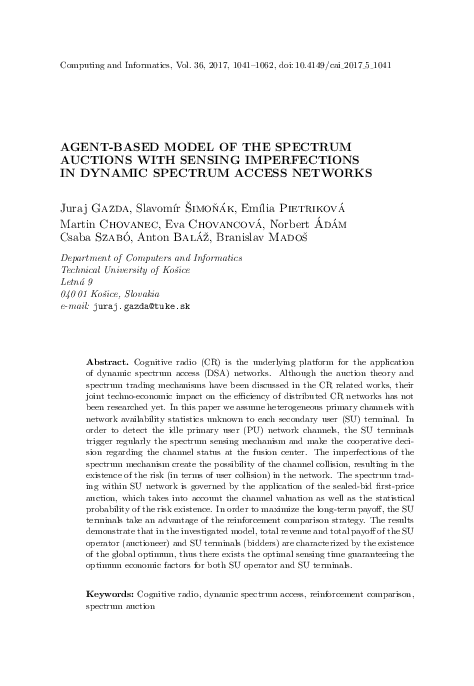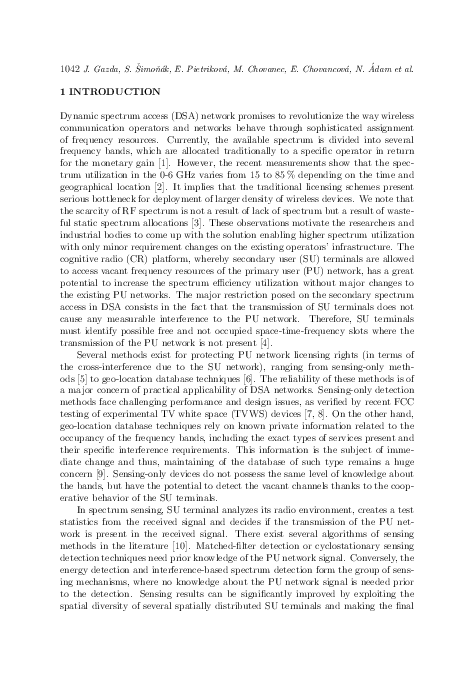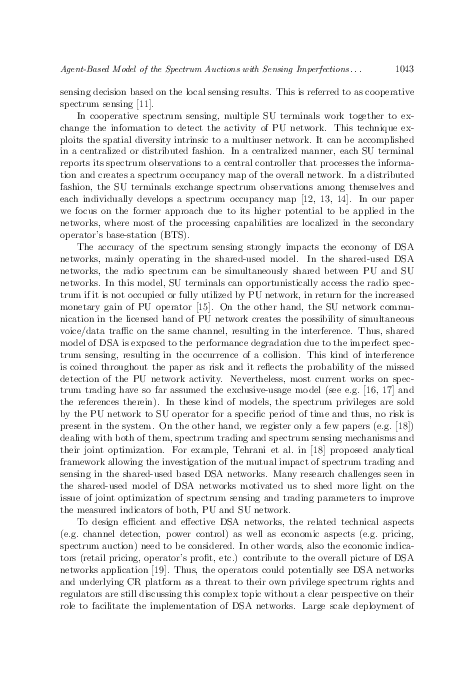Agent-Based Model of the Spectrum Auctions with Sensing Imperfections in Dynamic Spectrum Access Networks
keywords: Cognitive radio, dynamic spectrum access, reinforcement comparison, spectrum auction
Cognitive radio (CR) is the underlying platform for the application of dynamic spectrum access (DSA) networks. Although the auction theory and spectrum trading mechanisms have been discussed in the CR related works, their joint techno-economic impact on the efficiency of distributed CR networks has not been researched yet. In this paper we assume heterogeneous primary channels with network availability statistics unknown to each secondary user (SU) terminal. In order to detect the idle primary user (PU) network channels, the SU terminals trigger regularly the spectrum sensing mechanism and make the cooperative decision regarding the channel status at the fusion center. The imperfections of the spectrum mechanism create the possibility of the channel collision, resulting in the existence of the risk (in terms of user collision) in the network. The spectrum trading within SU network is governed by the application of the sealed-bid first-price auction, which takes into account the channel valuation as well as the statistical probability of the risk existence. In order to maximize the long-term payoff, the SU terminals take an advantage of the reinforcement comparison strategy. The results demonstrate that in the investigated model, total revenue and total payoff of the SU operator (auctioneer) and SU terminals (bidders) are characterized by the existence of the global optimum, thus there exists the optimal sensing time guaranteeing the optimum economic factors for both SU operator and SU terminals.
reference: Vol. 36, 2017, No. 5, pp. 1041–1062


